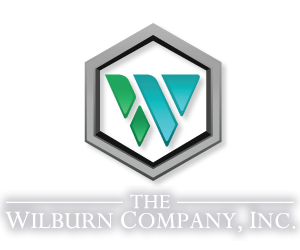
It’s hard to improve in something if you don’t have data on the quality of your performance.
Without data, we can’t identify our strengths and weaknesses, and that means we may not know how to work to get better.
This is why schools have tests – they reveal what students need to work on. It’s part of why sports leagues track stats – so athletes can focus on the skills they need help with. It’s why businesses conduct performance reviews – so employees can understand where they should continue to grow.
Commercial cleaning is no different. To do it effectively, we need data on what we’re doing. That’s the idea behind performance management.
In a recent article, we discussed how our company recently updated our performance management systems, and we outlined what our processes now include. In this article, we’d like to move to the next step and show just how performance management helps us to get better.
With that in mind, here are four tangible benefits to our performance management processes.
Performance management:
1. Makes our service more efficient.
First, performance management allows us to be more efficient in the work we do – both in terms of how we allocate our resources and in terms of how quickly we respond to needs.
Efficient scheduling
The barcode work management system we’ve implemented helps us to staff buildings sufficiently. Let’s say that every cleaning task is completed to our high-quality standards for a few months straight, and we notice that a couple of employees are actually looking for extra work to log. Based on the data, we can shift assignments to other sites so that staffing is ideal at every location.
Automatic responses
It used to be that work orders were only issued manually. If extra cleaning was needed or a spot was missed, a manager would have to file a ticket to get cleaning support. Now, things happen automatically. During quality checks, if any item is marked as a “3/5” or below, our work management system automatically files a work order and assigns it for completion. The end result is that needs are filled faster. (We also collect valuable data in the process – but more on that later.)
2. Helps our people continually improve.
On an individual level, our new performance management systems help our people to grow in their roles.
For instance, let’s say that the zone a cleaner is responsible for doesn’t receive full marks for a task several weeks in a row; maybe they miss spots in the kitchen a couple of times. Before, we likely wouldn’t have tracked this data at a granular level, and the person wouldn’t have known that they had an opportunity for growth.
With our current systems, however, we know exactly how our people score on every task. This isn’t so that we can micromanage them; it’s so we can empower them with the resources they need to improve their skills.
If an employee misses spots while cleaning the kitchen, we can provide them with specific training to help them understand what to look for and how to clean more effectively.
3. Helps our work to continually improve.
Performance management helps employees to grow at an individual level, and in a similar way, it also helps our work to improve at a more general level.
Let’s say, for instance, that we score a “3/5” more than once on a cleaning zone. Tracking this data allows us to problem-solve issues more effectively; maybe we can designate additional cleaners to that area so that it’s cleaned as thoroughly as possible.
Or let’s say that we get client-submitted work orders multiple times. Maybe our program is built for end-of-day cleaning, but clients file extra requests to clean the common area during the afternoon. Knowing that data, we can shift our program to accommodate updated needs.
The bottom line is that, on a portfolio-wide level, our performance management programs help us to continually improve.
4. Helps us communicate with and better serve our clients.
Finally, the benefits of performance management are realized by our clients.
We bring data from our performance management systems when we meet with our clients each month to discuss cleaning programs. Our clients also have ready access to the data, giving our relationship a foundation of transparency and trust.
Instead of talking in hypotheticals, we can look at real data points as we discuss how to best serve our buildings. The end result is that our clients (and building occupants) get cleaner, healthier spaces, month after month and year after year.
Want to realize the benefits of our performance management systems?
At The Wilburn Company, we’re excited to see how performance management is improving our cleaning services and helping us to build trust with our clients.
If you’d like to learn more about our approach (or if you want to work with a cleaning company that prioritizes continual improvement) we’d love to hear from you.
When you work with us, we’ll be thorough and honest in our assessment of our service – and we’ll consistently use data to make it better.
